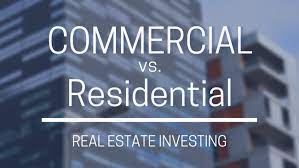Renting out a property is a fantastic way to generate income, but finding the right tenants is critical to success. Good tenants help keep your investment profitable, while problematic ones can turn your rental property into a nightmare. Learning how to identify potential issues early on can save landlords from headaches down the road. Below are five types of troublesome tenants landlords should be wary of.
1. The Frequent Mover

Finding long-term tenants is ideal for any landlord, as constant tenant turnover can be costly and time-consuming. A “quick mover” is someone who changes residences often. While they may seem harmless, they can be a red flag for deeper issues. Frequent movers often have a history of poor relationships with landlords, difficulty paying rent, or complaints from neighbors.
To avoid this types of troublesome tenants, ask for references from previous landlords and take note of how often they’ve moved in the past few years. If they’ve moved frequently within the same town or city, it might indicate ongoing issues with past landlords or properties. Screening for stability is crucial to ensuring a long-term, stress-free tenant relationship.
2. The Late Payer

While a tenant who pays rent late may not seem as problematic as one who skips payments entirely, slow payers can create significant financial strain for landlords. Consistently delayed payments disrupt cash flow and make it harder for landlords to manage property expenses such as mortgages and repairs.
To prevent issues with late rent, conduct thorough credit checks on prospective tenants. A credit report provides insight into how they handle their finances and whether they’ve had problems paying bills on time in the past. Setting clear expectations in the lease about payment deadlines and penalties for late payments is another way to mitigate the risks associated with slow payers.
3. The Messy Tenant

No landlord wants a tenant who neglects cleanliness, as it can lead to damage to the property and expensive repairs. The “filth lover” type of tenant may be comfortable living in untidy conditions, but it can negatively impact the property’s value and future rentability. Dirty living spaces can also attract pests, leading to additional problems and costs.
Landlords can address this issue by including cleanliness clauses in the rental agreement. For example, they can specify the tenant’s responsibility for maintaining certain standards of cleanliness and even include provisions that allow the landlord to hire professional cleaners at the tenant’s expense if these standards are not met. This approach protects the property from long-term damage caused by unsanitary living conditions.
4. The Entitled Tenant

While it’s expected that tenants will make reasonable requests for repairs and maintenance, some take it too far. This type of tenant are often referred to as “the demander.” They may continually request upgrades or new amenities that go beyond what the landlord is obligated to provide. From demanding new blinds or appliances to constantly calling for unnecessary repairs, they can be a significant drain on time and resources.
Landlords should clearly outline what is covered in the lease and what is not. Being firm about what constitutes necessary repairs versus unnecessary upgrades will prevent tenants from taking advantage of a landlord’s goodwill. Clear communication and well-drafted lease agreements can help set boundaries and manage expectations from the beginning.
5. The Troublemaker

Dealing with tenants who have a history of causing disturbances or engaging in illegal activity can be challenging. “The troublemaker” might have a criminal record or a history of conflicts with neighbors. It can disrupt the peace and safety of the property.
Landlords have the right to conduct background checks, including reviewing criminal records, to determine if a prospective tenant has been involved in activities that could pose a risk to other tenants or the property. However, landlords must exercise caution to avoid discriminatory practices. Refusing tenants based solely on past criminal records must be handled carefully and in accordance with fair housing laws, ensuring the decision is based on genuine concerns related to the safety and well-being of others.
Conclusion
Selecting the right tenants is just the beginning of the rental property management journey. By recognizing these five types of troublesome tenants—quick movers, late payers, messy tenants, entitled demanders, and troublemakers—landlords can take proactive steps to minimize risk and protect their investments. A well-constructed lease, proper tenant screening, and clear communication will go a long way in maintaining a positive landlord-tenant relationship.
Having the right tenants not only ensures your property remains in good condition. It also helps sustain a steady income and keeps the rental process running smoothly. By implementing effective screening methods and setting clear expectations from the start, landlords can avoid many of the common challenges associated with renting properties.




